articles #interview
Student Forum Fest Anča: Where Ideas, Passion & People Meet
An interview with Nina de Gelder, coordinator of the Student Forum Fest Anča, about the mission of the event that brings together students, educators, and professionals from the field of animation. What is the main mission of this exceptional event? What does its program usually look like? And how does Nina view the current state of animation education in Europe? In our conversation, we looked back at the history of the event and also took a glimpse at what the Forum has planned for this year, from June 24 to 26, 2025.
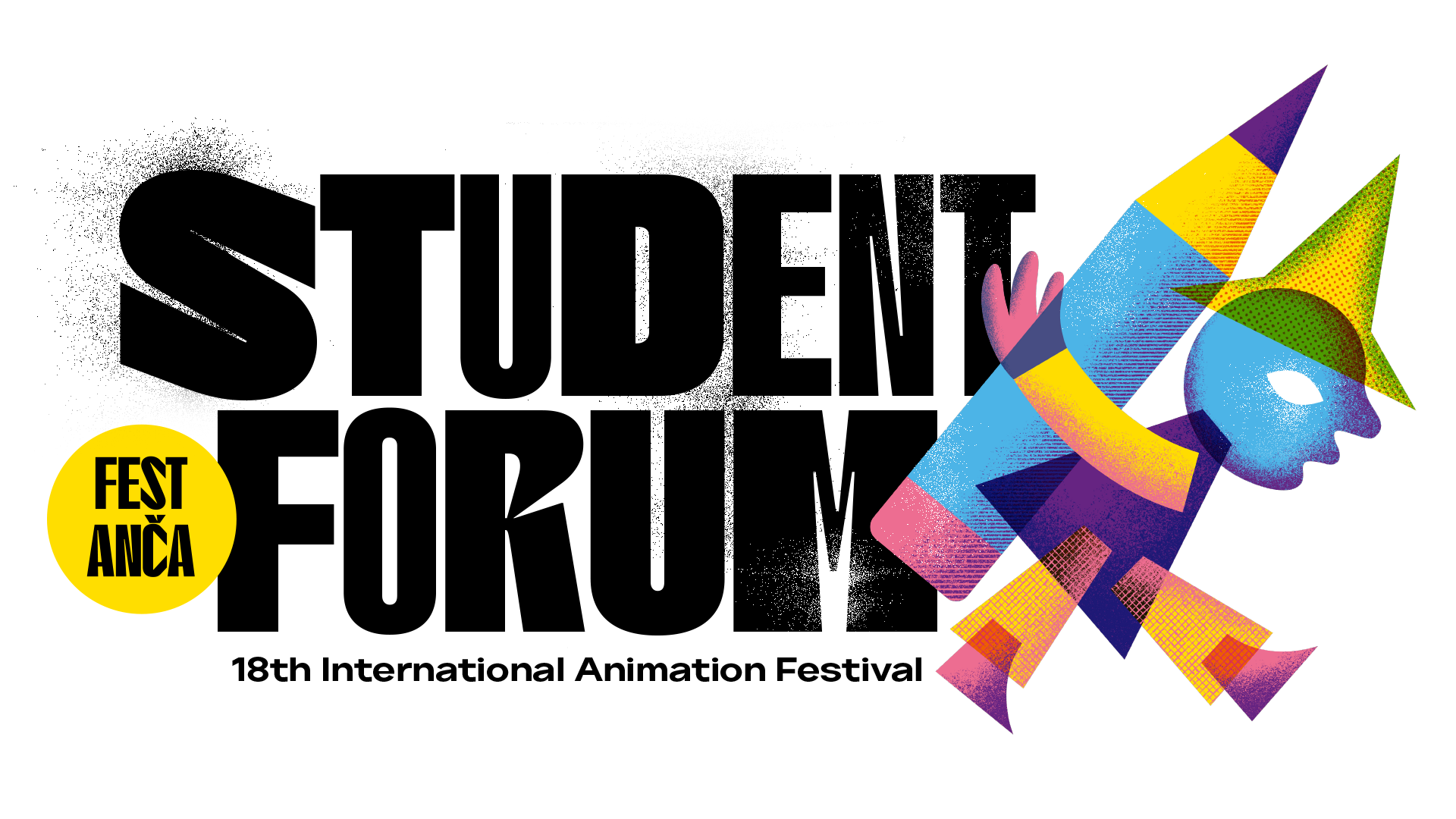
Could you please explain the idea behind the Student Forum? How and why did it come into being?
Animation is taught in diverse ways across Europe. There are noticeable differences between schools in Central and Eastern Europe (CEE) and those in Western or Northern Europe. While the latter tend to emphasize technical and practical skills that prepare students for professional opportunities, animation schools in the CEE region are more focused on preserving their rich animation tradition with a strong emphasis on artistic and stylistic experimentation.
This approach has nurtured many distinctive authorial voices in the CEE region, contributing to a unique and valuable animation environment within the broader European context. However, these voices often remain isolated, with limited exchange of know-how and collaboration. Many students also struggle to acquire the practical skills and industry connections necessary to succeed in the global job market.
The Student Forum was created to address these challenges. Its goal is to provide a stimulating platform tailored to the specific needs of animation schools, particularly those in the CEE region, where they can share knowledge, collaborate, and build networks. We also aim to connect these schools with institutions and students from other parts of Europe and the world.
The Forum gives participating schools and students the opportunity to present their work and ideas, showcase emerging talent, meet industry professionals, and explore potential collaborations. Organizing the Forum as part of Fest Anča feels like a natural fit – participants can enjoy the full festival experience, including screenings, inspiring talks, and interactions with renowned figures in the animation world, all within a community that shares a deep love for animation.
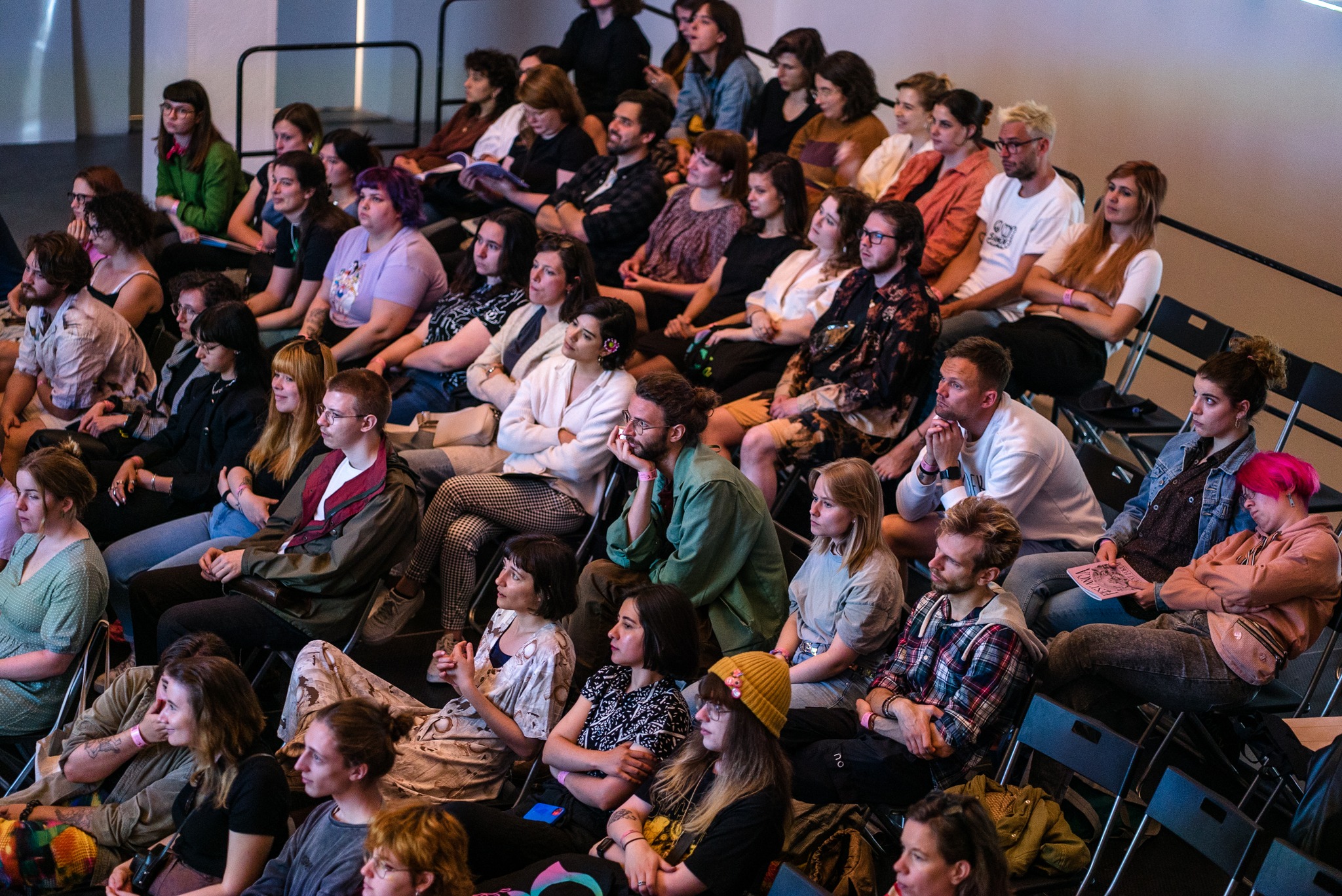
What is its main mission?
The mission of the Student Forum is to become a vibrant and sustainable platform that fosters a growing, well-connected community of students, teachers, and schools who learn from one another. What makes the Forum truly unique is its focus on networking and capacity building across all levels, supporting institutions, educators, and students alike.
We are proud to be the only long-term initiative of its kind dedicated to strengthening collaboration within the animation education ecosystem. The Forum offers a rare opportunity for participants to explore different teaching approaches, exchange knowledge, and connect not only with each other, but also with industry professionals such as producers and distributors.
It also creates space for informal, peer-to-peer connections outside the academic environment, something we believe is equally valuable. Our goal is to build on existing experiences while welcoming new members who bring fresh perspectives, authentic insights, and diverse expertise to the table.
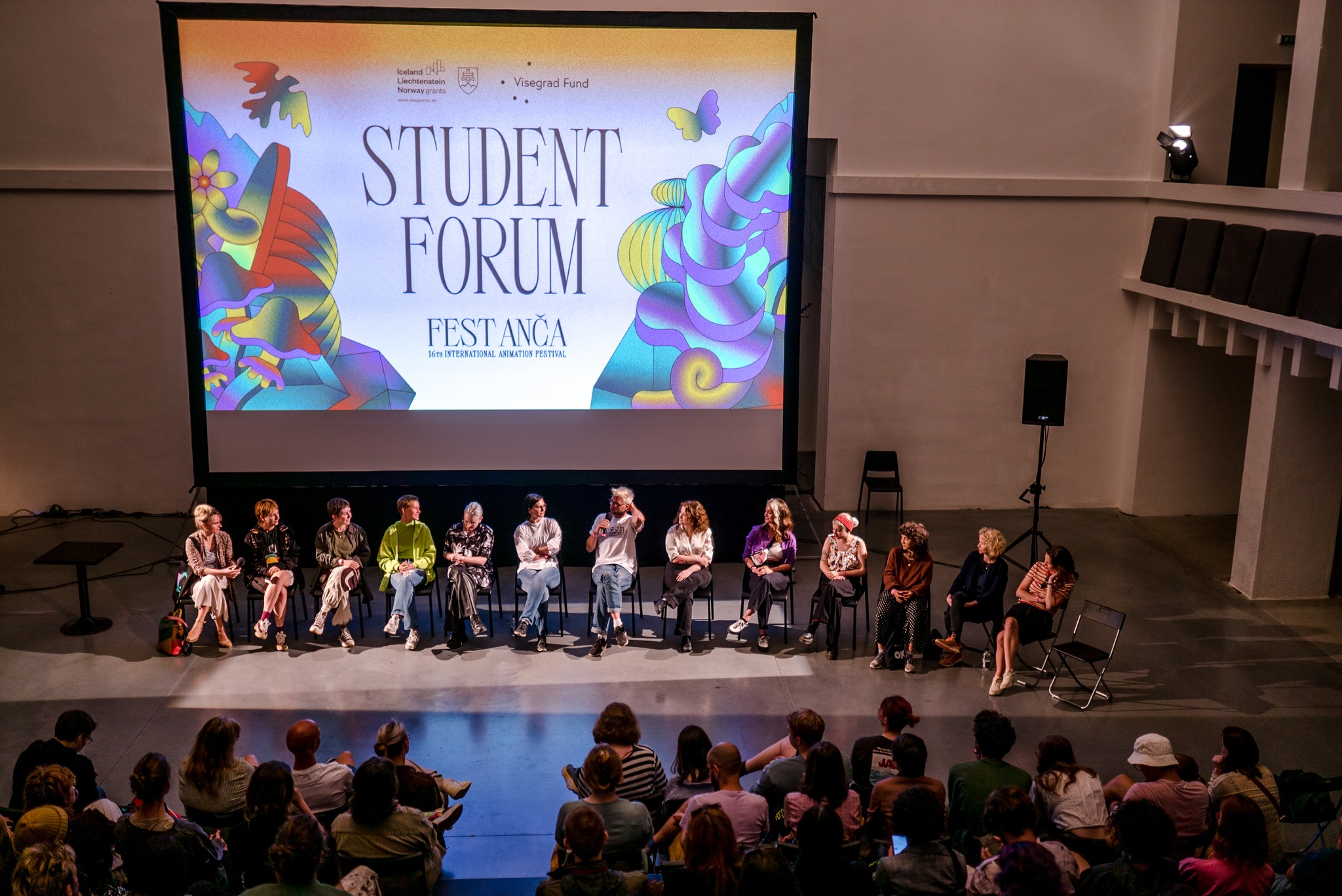
The Student Forum has been held for four years now. How has it evolved since the beginning?
Over the past four years, the Student Forum has gradually solidified its structure, allowing us to continue building on a strong foundation. From the very beginning, our core aim has been to give space to animation schools to present their teaching philosophies, students to showcase their work, and industry professionals to share their insights and experiences. That original format has proven effective and continues to shape the Forum today.
Each year, we also highlight a "success story" – a graduate whose work has gained international recognition, to inspire current students by showing the real-world impact and possibilities of a career in animation.
Starting in 2024, we introduced a new structure that features "focus schools" and "alumni schools." Focus schools are new partners invited to present themselves in depth, while alumni schools are our returning partners from previous editions. This evolving system helps us maintain continuity, deepen existing relationships, and steadily grow a strong, engaged community.
We’ve also been developing new formats to enrich the experience. For instance, last year we introduced a session where students could share personal projects that inspire or influence their animation practice, creating space for more intimate and reflective dialogue.
In addition, we aim to engage with timely and relevant topics. This year, for example, the festival programme includes a presentation and discussion titled Environmentally Responsible Animation?, which invites participants to think critically about sustainability within the animation industry. Through these developments, the Forum continues to grow as a dynamic, thoughtful, and community-driven platform.
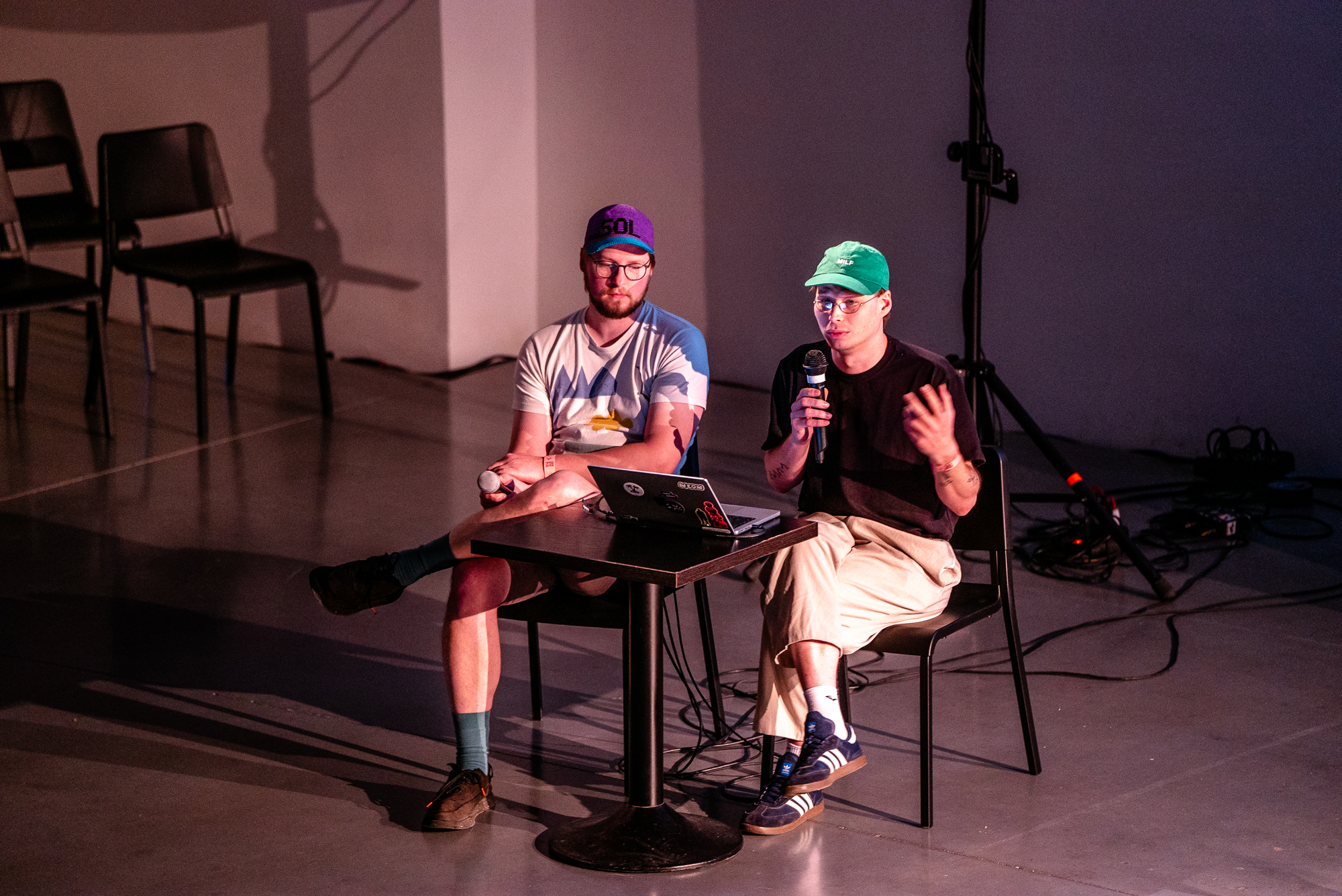
Which schools from which parts of the world have you managed to bring to Žilina?
This year, the Student Forum is proud to welcome 12 participating universities from across Europe. The Forum continues to grow its international scope while building a strong, consistent network of partner schools
For 2025, we have invited two focus schools, new partners that are given space to present their programs and perspectives in depth:
The Ladislav Sutnar Faculty of Design and Art (Sutnarka) – Pilsen, Czechia
Avans University of Applied Sciences – Master of Animation – Breda, The Netherlands
In addition, we are welcoming back ten alumni schools, institutions that have participated in previous editions and continue to be part of our expanding community:
Faculty of Multimedia Communications, Tomáš Baťa University in Zlín – Czechia
Academy of Fine Arts – Zagreb, Croatia
Academy of Art, Architecture and Design (UMPRUM) – Prague, Czechia
Estonian Academy of Arts (EKA) – Tallinn, Estonia
University of Nova Gorica School of Arts – Slovenia
Polish National Film, Television and Theatre School in Łódź – Poland
National University of Theatre and Cinematography I.L. Caragiale (UNATC) – Bucharest, Romania
Lusófona University – Lisbon, Portugal
Moholy-Nagy University of Art and Design (MOME) – Budapest, Hungary
Film and Television Faculty of the Academy of Performing Arts (VŠMU) – Bratislava, Slovakia
This year, we are also happy to welcome two guest teachers as observers:
KASK – Royal Academy of Fine Arts – Gent, Belgium
Kraków Academy of Fine Arts – Poland
Their presence is part of our long-term vision to gradually expand the Forum’s network and engage new institutions in future collaborations.
In previous editions, we were also pleased to host:
Inland Norway University of Applied Sciences – Norway
Film and TV School of the Academy of Performing Arts (FAMU) – Prague, Czechia
Reykjavik Academy of Digital Entertainment (RADE) – Iceland
This diverse representation fosters rich dialogue between different teaching models, cultural perspectives, and creative approaches. We believe this cross-pollination is essential for shaping a truly inclusive and resilient animation community.
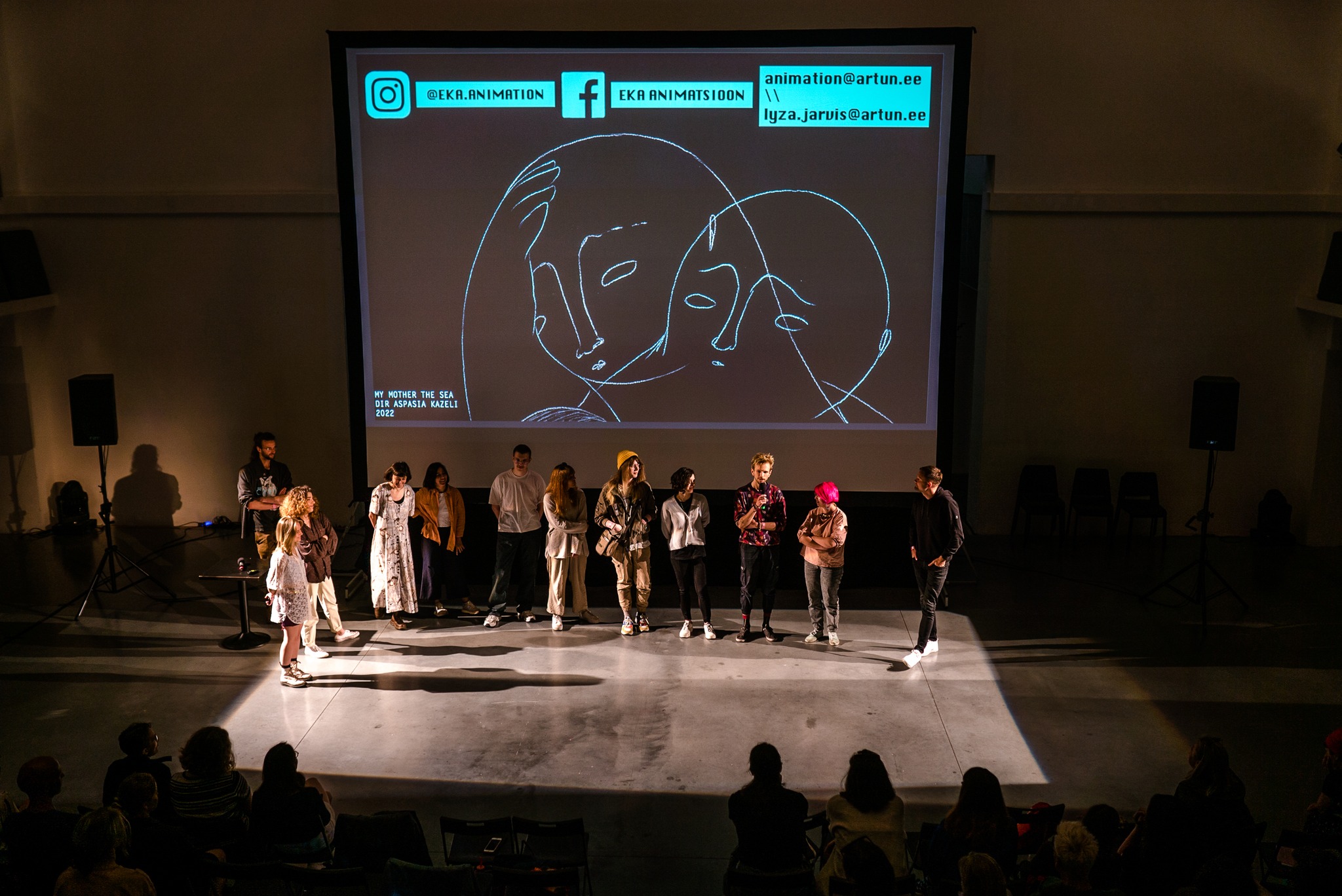
With so many schools that have already presented at the Forum, can you describe some of the differences between them? Has anything surprised you?
While it wasn’t necessarily surprising, the Forum has truly confirmed what we had hoped for – an enriching exchange of diverse teaching approaches and creative mindsets. One clear difference we've observed is the level of industry integration in schools from countries like Iceland and Norway. Students there often begin working in studios or advertising agencies while still studying, thanks to structured internships and strong ties between academia and the animation industry. This gives them valuable real-world experience early on.
In contrast, students from Central and Eastern European (CEE) schools often bring a very distinctive and highly personal artistic voice. Their work frequently involves analogue techniques, such as puppet animation or handcrafted visuals, showcasing an incredible level of craftsmanship. It was beautiful to witness how students from more industry-driven environments were genuinely inspired by this authenticity and hands-on creativity.
Another striking difference is how strongly Northern European universities emphasize teamwork and collaboration, skills that are sometimes less organically developed in other systems. That approach has sparked new conversations and ideas among participants.
This year, we’re particularly excited to welcome a teacher from Avans University, who will present a professional studio simulation used in their curriculum. The model connects students with real-world clients and focuses not only on developing technical (hard) skills but also on essential soft skills like communication, teamwork, and adaptability – key competencies for succeeding in today’s animation industry.
These contrasts and shared insights are exactly what make the Forum so valuable: a space where inspiration flows both ways.
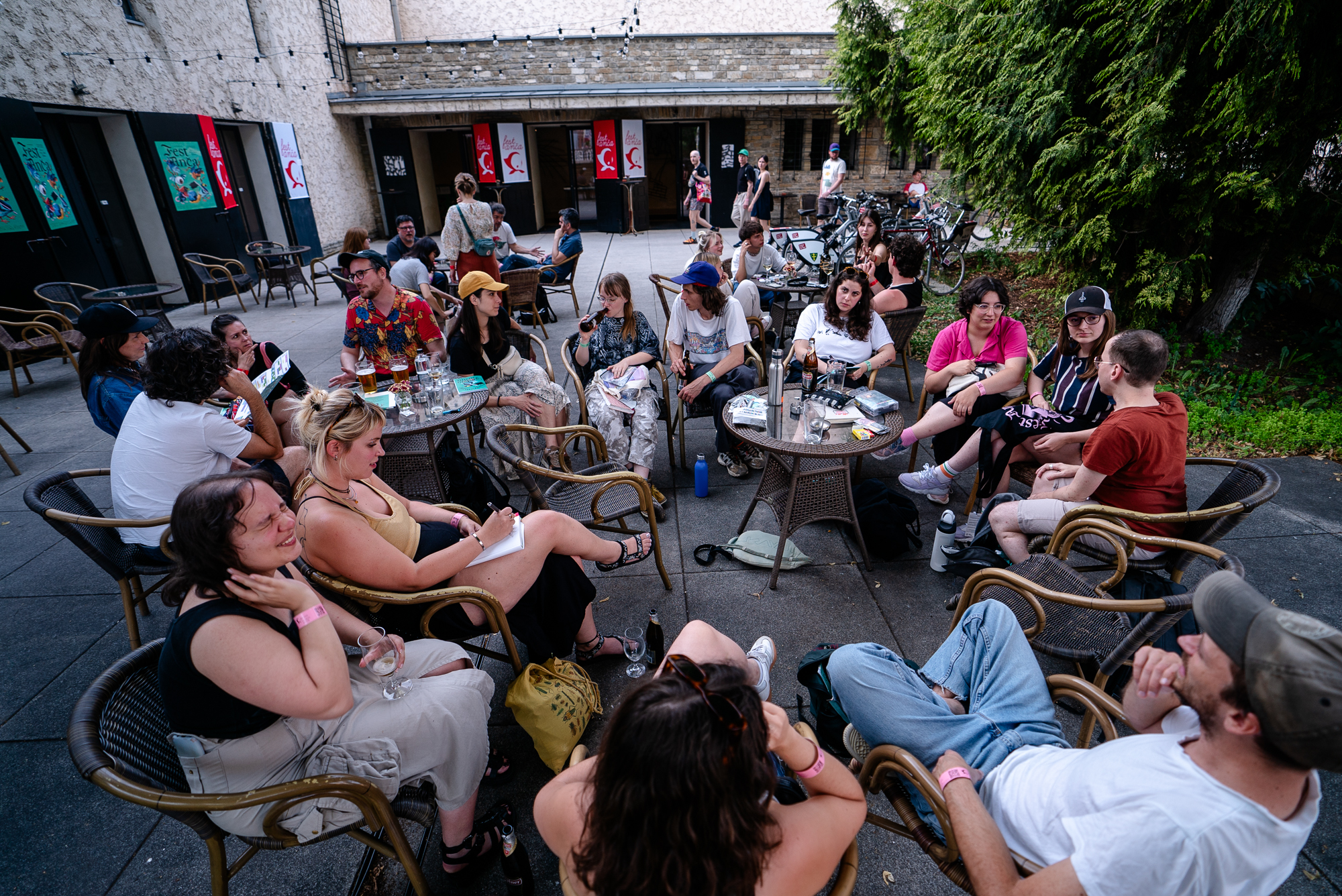
Several schools return as alumni. Have you observed any developments or changes in education in recent years?
Yes, absolutely. One of the most encouraging aspects of working with returning schools is seeing how actively they are evolving. We’ve observed a clear shift in many academies as they respond to current trends and the changing landscape of the creative industries. Topics like artificial intelligence, immersive media, and the growing influence of the game industry are making their way into curricula, sometimes as dedicated courses, other times as interdisciplinary components.
What’s also very apparent is a growing emphasis on giving students real, hands-on experience. Schools are increasingly aware that technical training alone isn’t enough, and we see more structured support for internships, studio simulations, and collaboration with external partners. These experiences are crucial for preparing students for the realities of professional life.
Another significant development is the rise in international cooperation—whether through exchange programs, joint projects, or shared platforms like the Student Forum. Schools are becoming more open and agile, with a greater focus on cross-border exchange of practices. It’s exciting to witness how these changes are gradually shaping a more connected, flexible, and future-ready animation education.
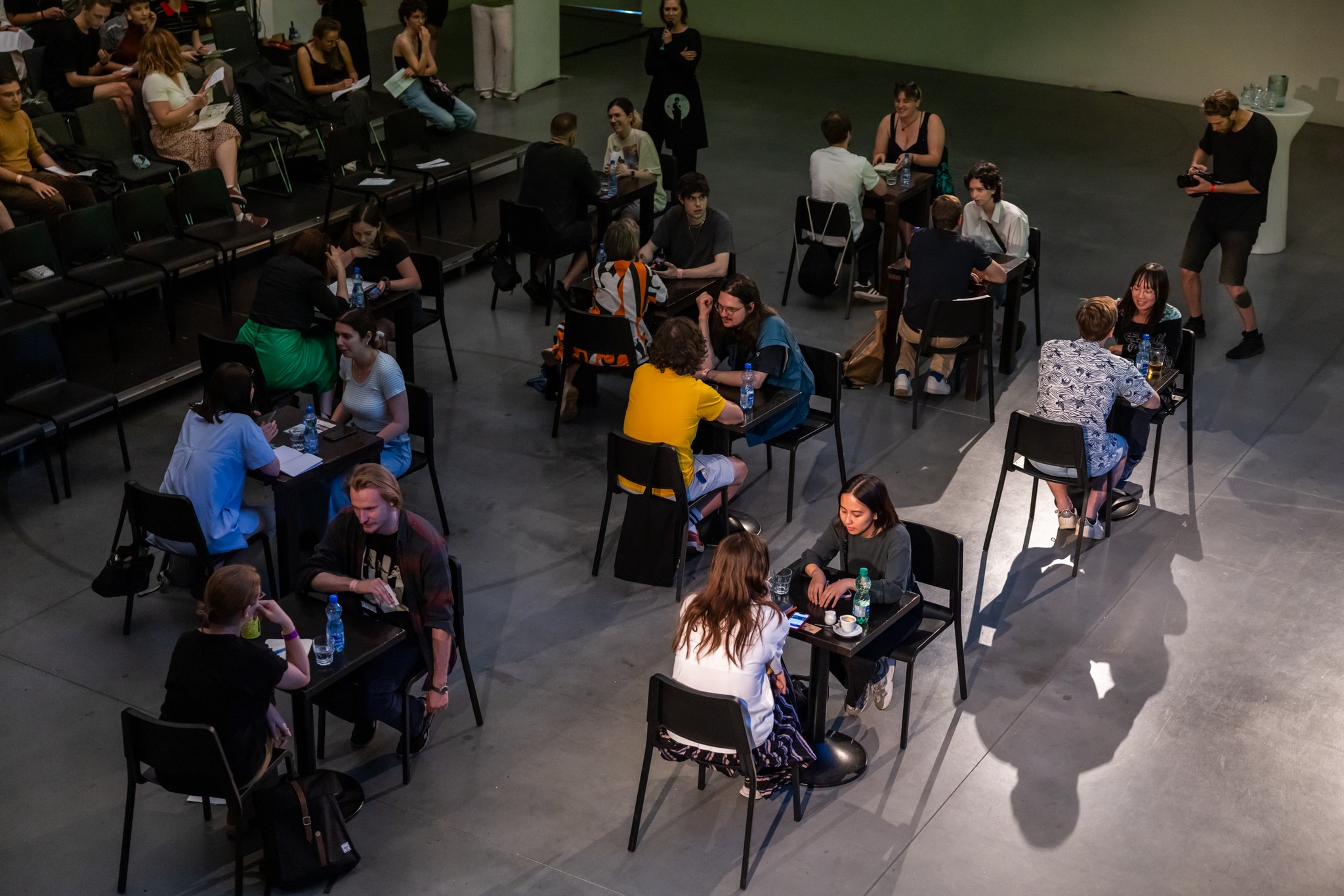
What does a typical Student Forum program look like?
The Student Forum follows a well-established structure. It includes presentations by teachers on their approach to teaching animation, screenings of student films followed by discussions, and a “success story” session featuring a recent graduate whose work gained recognition.
We also invite professionals from the animation industry – producers, distributors, animators, and festival organizers. This year, representatives from Pirogy Studios (Zlín) will present their co-production with Tomáš Baťa University, and a guest from the Polish Animation Producers Association (SPPA) will share insights on how SPPA supports animation through education, international promotion, and advocacy.
A highlight of the Forum is the closing “speed dating” session, where students have fast-paced conversations with professionals, including industry guests and festival jurors. It’s a dynamic and inspiring way to connect and explore future opportunities.
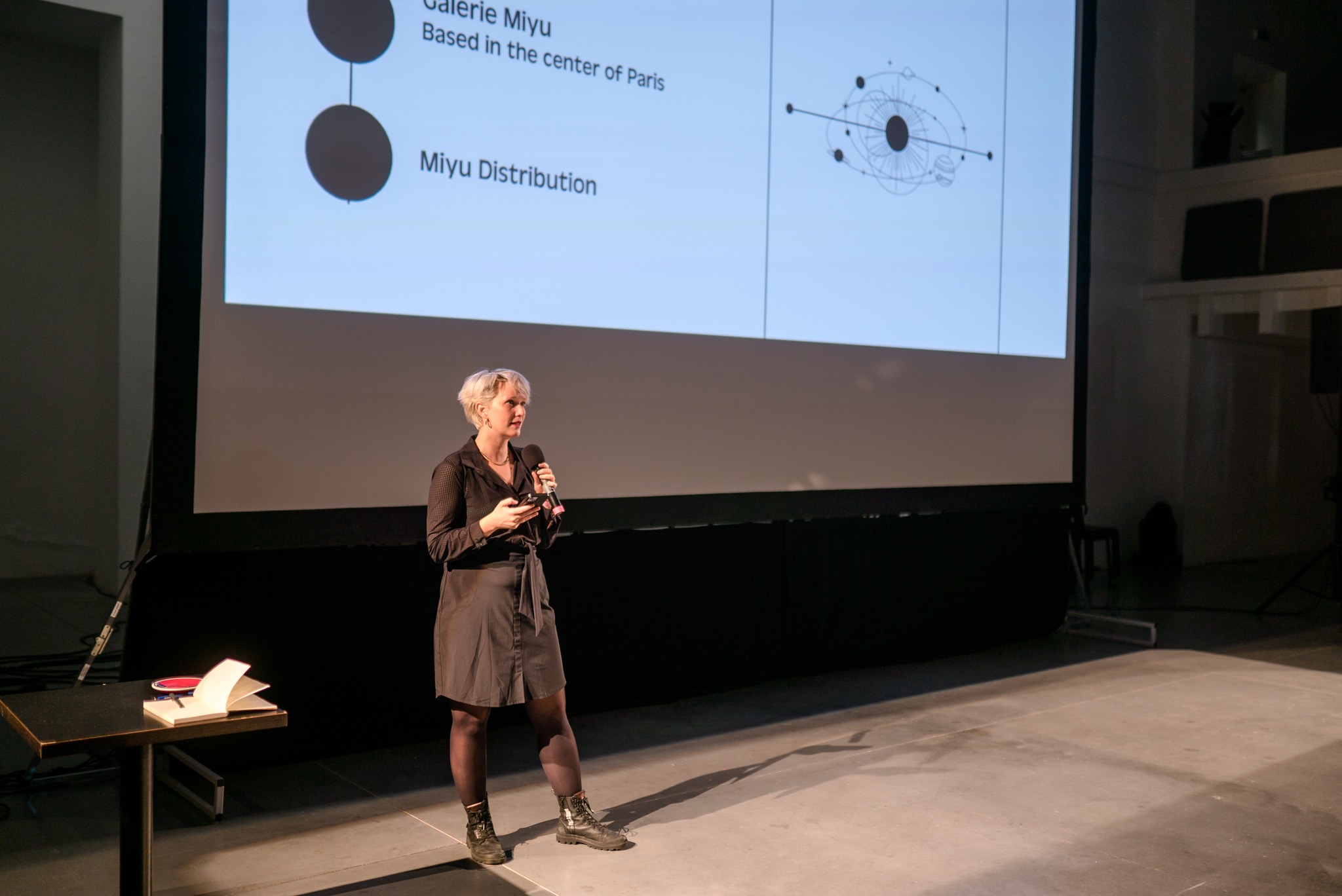
What kind of guests have you been able to introduce to the students over the years?
Over the years, we’ve had the pleasure of welcoming a remarkable range of guests from across the animation industry – professionals who not only inspire but also generously share their expertise and insights with students.
Among them was Benoit Berthe Siward, film strategist and founder of The Animation Showcase. Benoit has helped numerous short and feature films gain international recognition, leading award campaigns that resulted in over 20 Oscar nominations, including FLEE, Marcel the Shell with Shoes On, and the Oscar-winning The Windshield Wiper. His talk gave students a rare behind-the-scenes look at how strategy and promotion play a role in an animation film’s success.
We also hosted Luce Grosjean from Miyu Distribution, one of the most respected voices in animation distribution. She walked students through the full distribution cycle, highlighting the challenges and opportunities facing young filmmakers as they bring their work to audiences worldwide.
From Poland, Wojtek Leszczyński and Anna Mroczek of WJT Company presented their production work and shared how their studio actively collaborates with students, a valuable insight into real-world studio practices and pathways for future collaboration.
In our “success story” format, we featured Diana Cam Van Nguyen, a Czech-Vietnamese director based in Prague. She presented her acclaimed short film Love, Dad, a Czech-Slovak co-production that has received numerous awards on the international festival circuit. Her journey resonated deeply with students, offering an honest and motivating example of turning a personal story into an internationally celebrated film.
These encounters are central to the mission of the Student Forum—to connect emerging talents with leading voices and open up new perspectives on what’s possible in animation.

Could you share some powerful or memorable moments from past editions?
One of the most memorable moments was definitely the presentation by Diana Cam Van Nguyen. Her personal story and the screening of her short film Love, Dad deeply resonated with the audience. You could truly feel the emotional impact in the room, it was one of those powerful moments when storytelling creates a real connection between the filmmaker and the viewers.
Another recurring highlight is always the speed dating session. It’s exciting to witness the energy in the room – students are visibly uplifted and inspired after having direct conversations with professionals they’ve just seen on stage or admired from afar. These short but meaningful encounters often spark new motivation, ideas, and even future opportunities.
And of course, there’s that collective feeling at the end of the Forum—a sense of something meaningful having happened. After the presentations, discussions, and networking, we all get to relax and enjoy the festival together. That mix of hard work, shared passion, and celebration is what makes the Student Forum truly special.
Does the event offer anything special for educators?
Absolutely. One of the core values of the Student Forum is that it’s not only for students, it’s also a meaningful space for educators. It provides a platform to share good practices, but just as importantly, to share what hasn’t worked.
The Forum can inspire teachers to explore new methods or rethink how they engage with students and current industry developments. It also fosters lasting academic relationships—educators often invite each other to give guest lectures or continue their conversations within other academic platforms and events.
In many ways, the Forum acts as a living academic network, where teachers can reflect, evolve, and collaborate, not just once a year, but as an ongoing dialogue throughout the academic world of animation.
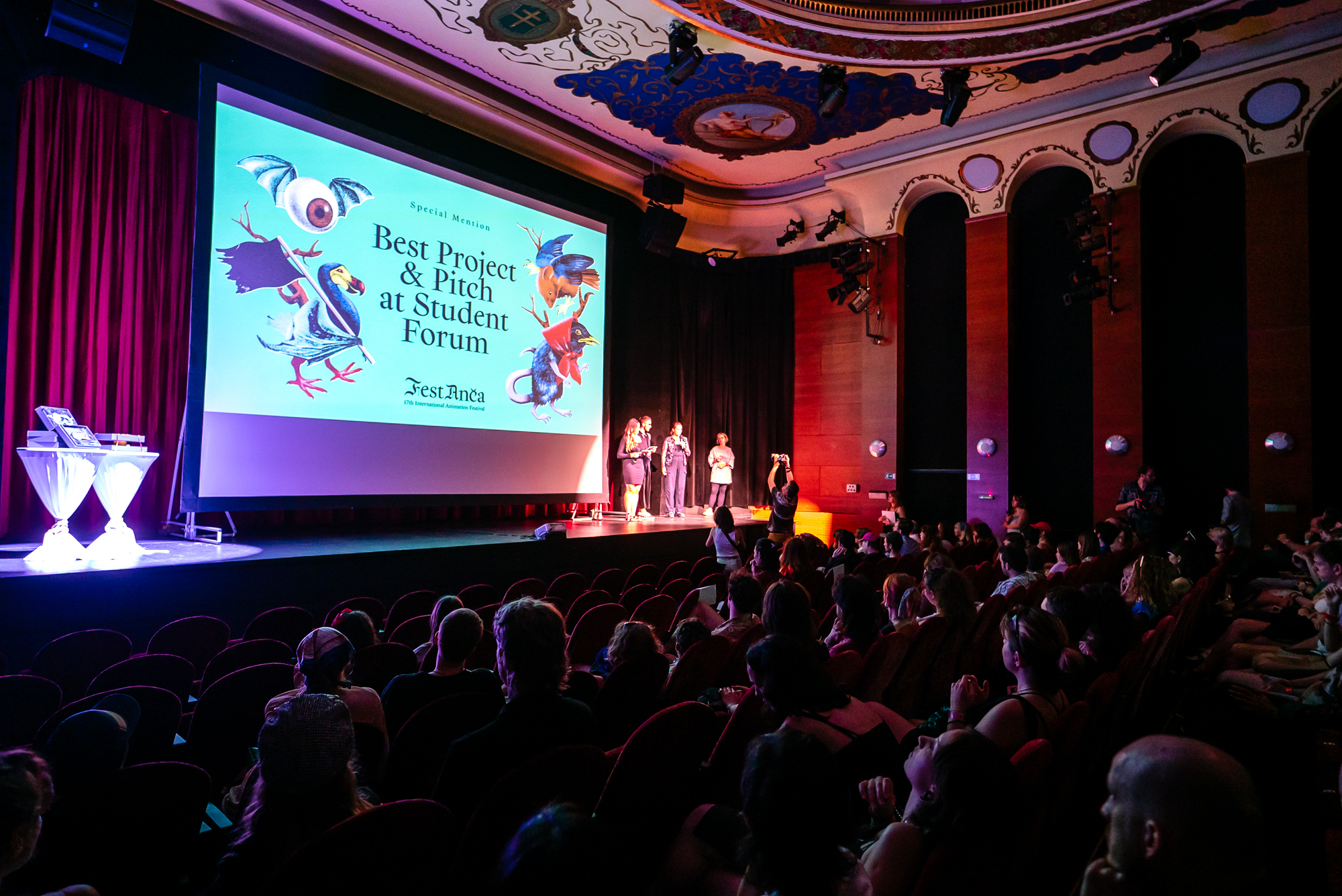
You’ve also added the Labour of Love and student project pitching. Can you tell us more about this part of the program?
Yes! We’re very excited about both Labour of Love (LOL) and the Student Pitching Forum, two complementary parts of the Student Forum that give students space to share and develop their work in meaningful ways.
Labour of Love is a special segment where students present personal creative projects that go beyond traditional animation – like game design, illustration, fashion, analog crafts, VR/AR, or performance visuals. It’s about showing the full creative spectrum that inspires and enriches their animation journey.
Each student gets a short, fast-paced presentation slot, inspired by PechaKucha. But what makes LOL truly special is the atmosphere – it’s often the first time students present such personal work outside their school, and they do it in front of a supportive, mixed audience of peers and professionals. The goal is to create a space for inspiration, cross-disciplinary exchange, and potential collaborations. We see LOL as a natural extension of the Forum’s spirit: celebrating not only animation education and careers, but the broader creative journey that fuels them.
The Student Pitching Forum, on the other hand, offers students the chance to pitch their bachelor’s or master’s film projects to an international jury of producers, distributors, and festival programmers. It’s a more formal format and it gives students valuable feedback and experience with presenting their ideas in a professional context. It also opens the door to potential co-productions or distribution.
Together, these formats enrich the Forum by giving students multiple ways to share their work—finished or in-progress, personal or academic—and connect meaningfully with the wider animation community.
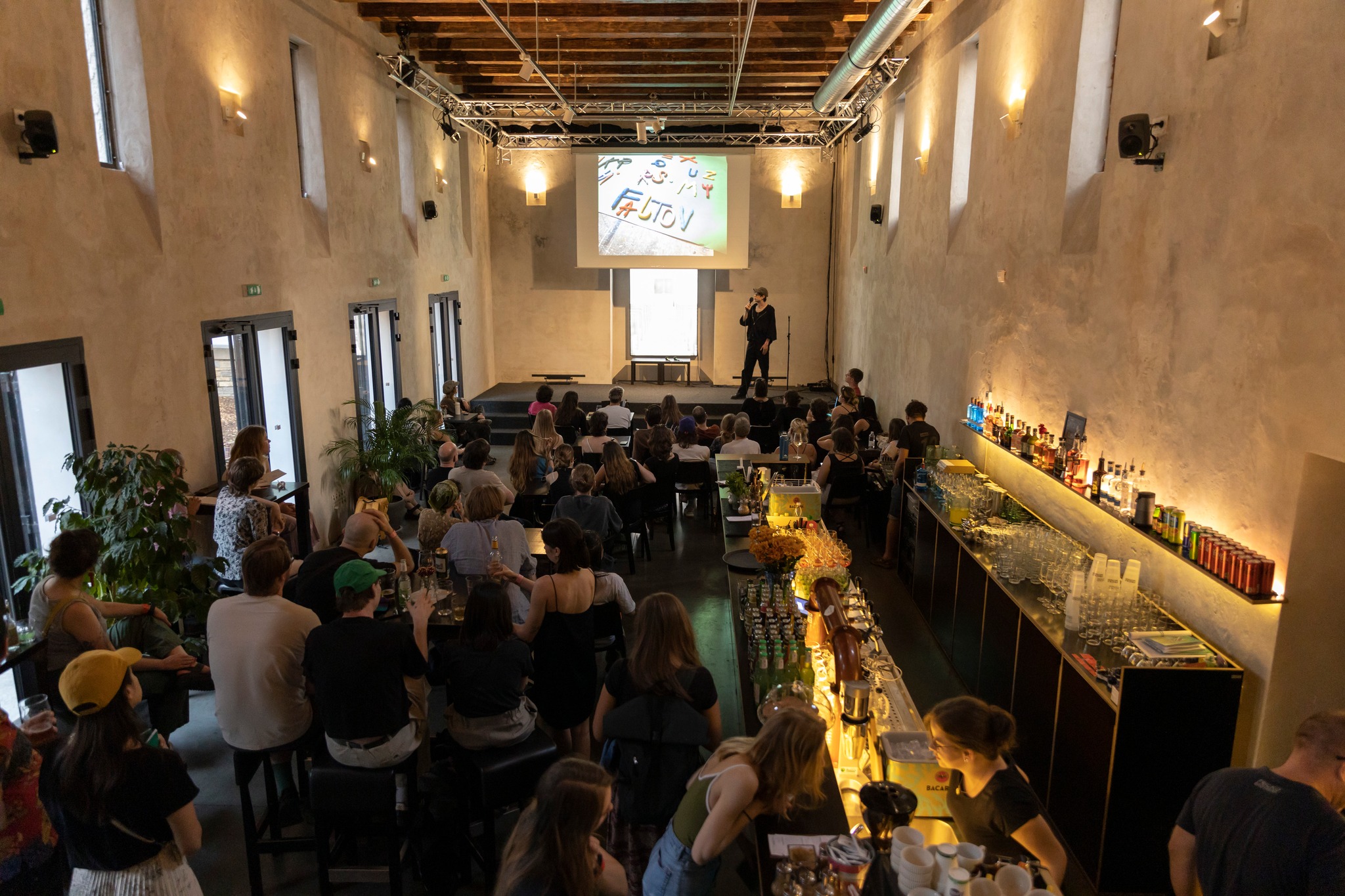
What would you wish for the Forum in the coming years?
We created the Student Forum because we believe that education is naturally an integral part of a festival environment – a space where knowledge, inspiration, and current trends come together in a meaningful way. Animation is constantly evolving, and education must be able to evolve with it. That’s what the Forum is here to support.
Looking ahead, I would love to see the Student Forum grow into a strong, interconnected community, one where schools, teachers, and students are eager to share, collaborate, and support each other across borders. I hope universities will continue to see the Forum as a valuable and natural extension of their work: a space where education meets real-world practice and international exchange.
And of course, for all of this to happen, sustainable financing is key. I truly hope that the Forum continues to receive support, especially through EU programs and international cooperation schemes, so we can keep developing this platform, building bridges, and helping the next generation of animators develop their full potential.
Do you select schools based on any specific criteria? What if a school would like to join?
We don’t follow a rigid selection process, but we do make thoughtful invitations. Many of the schools we invite are ones we’ve encountered through festivals, markets, and professional events, such as MIFA in Annecy, where we have the opportunity to see their work and meet their representatives.
Our goal is to bring together a diverse mix of schools that reflect different educational approaches, traditions, and cultural backgrounds. For example, this year we welcomed a school from the Netherlands, where the structure and educational focus is quite different from what we see in schools in Czechia. That contrast creates meaningful exchange.
We also intentionally look for new partners from regions with strong animation traditions, like Poland, and promising schools like KASK in Gent, whose work we admire. In fact, this year we’ve invited teachers from both Poland and Belgium as guests and observers, and we sincerely hope they will join us as partners in future editions.
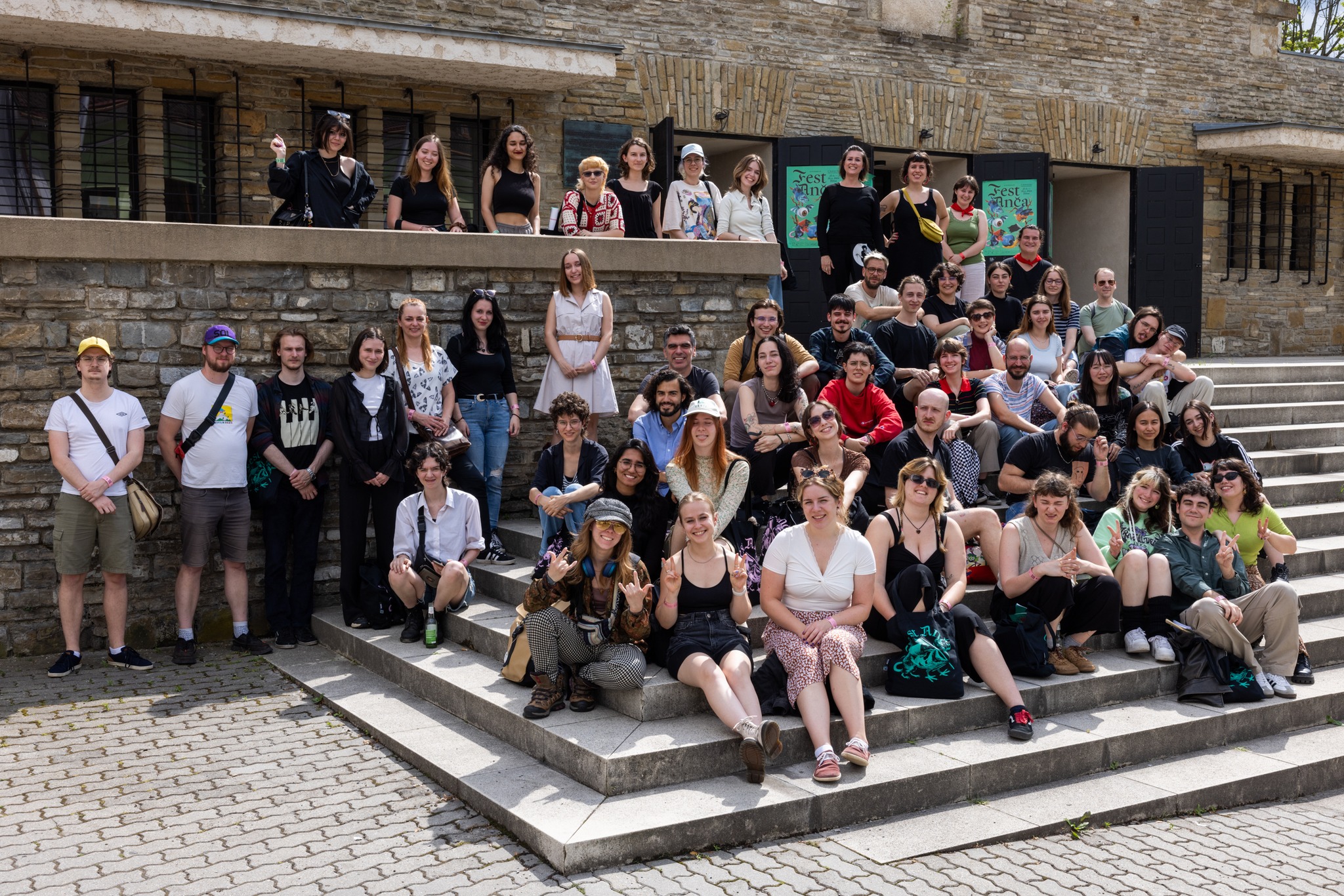
Jakou roli hraje v této akci Animation Festival Network? Můžeš ji přiblížit?
The Student Forum 2025 is organized as part of AFN Edu, an educational initiative under the umbrella of the Animation Festival Network (AFN). This collaboration is supported by the Creative Europe MEDIA programme.
AFN brings together five leading animation festivals from the Central and Eastern European (CEE) region, each focused on auteur animated films—for both young and adult audiences. These festivals are:
Animafest Zagreb (Croatia)
Anifilm International Festival of Animated Films (Czechia)
Fest Anča International Animation Festival (Slovakia)
Animest International Animation Film Festival (Romania)
Animateka International Animated Film Festival (Slovenia)
Formally established in 2020, the network builds on years of informal cooperation. It provides a shared framework to pursue common goals: promoting auteur animation, expanding audience reach, and strengthening institutional and educational capacities through the exchange of experience and best practices.
The AFN Edu initiative, with the Student Forum as a key component, focuses specifically on nurturing young talents. It introduces students to the professional animation world through lectures, workshops, and in-depth networking opportunities during the festivals. Thanks to AFN Edu, we are able to create a strong educational dimension that complements each festival’s artistic program – while also supporting long-term capacity-building in the region.
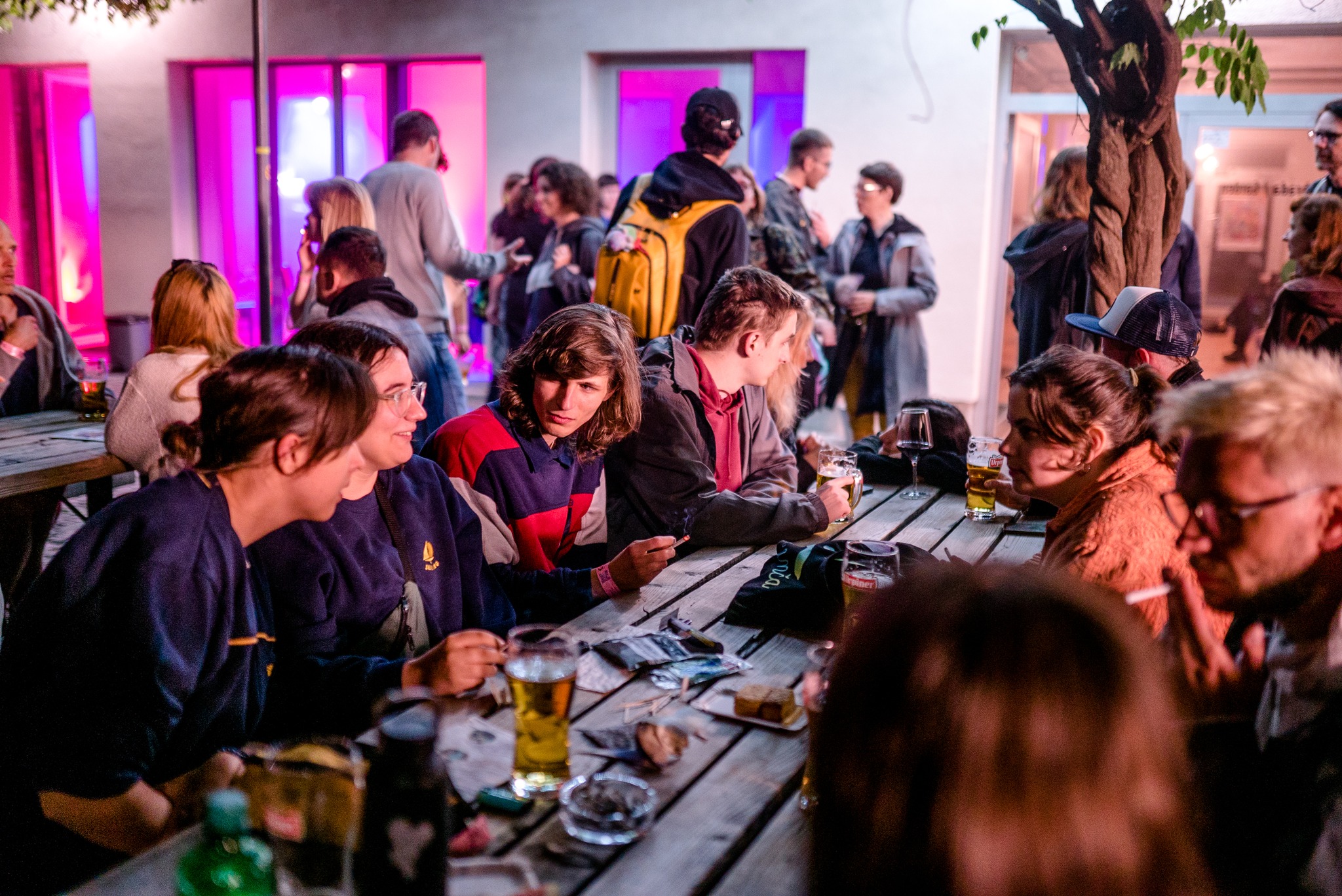
What does the Student Forum mean to you personally?
For me, the Student Forum is a meaningful opportunity to stay connected with the world of education, particularly with animation schools and universities across Europe. I’ve spent many years working on international cooperation at the Academy of Fine Arts and Design in Bratislava, so this kind of initiative feels very natural to me.
I genuinely enjoy building platforms where people can meet, collaborate, and share ideas, especially when it leads to long-term connections and positive changes. Bringing together educators, students, and professionals in a way that’s both structured and inspiring is something I care deeply about, and the international aspect makes it even more exciting. It’s incredibly rewarding to see how much the participants gain from it, and how much energy and creativity they bring in return.
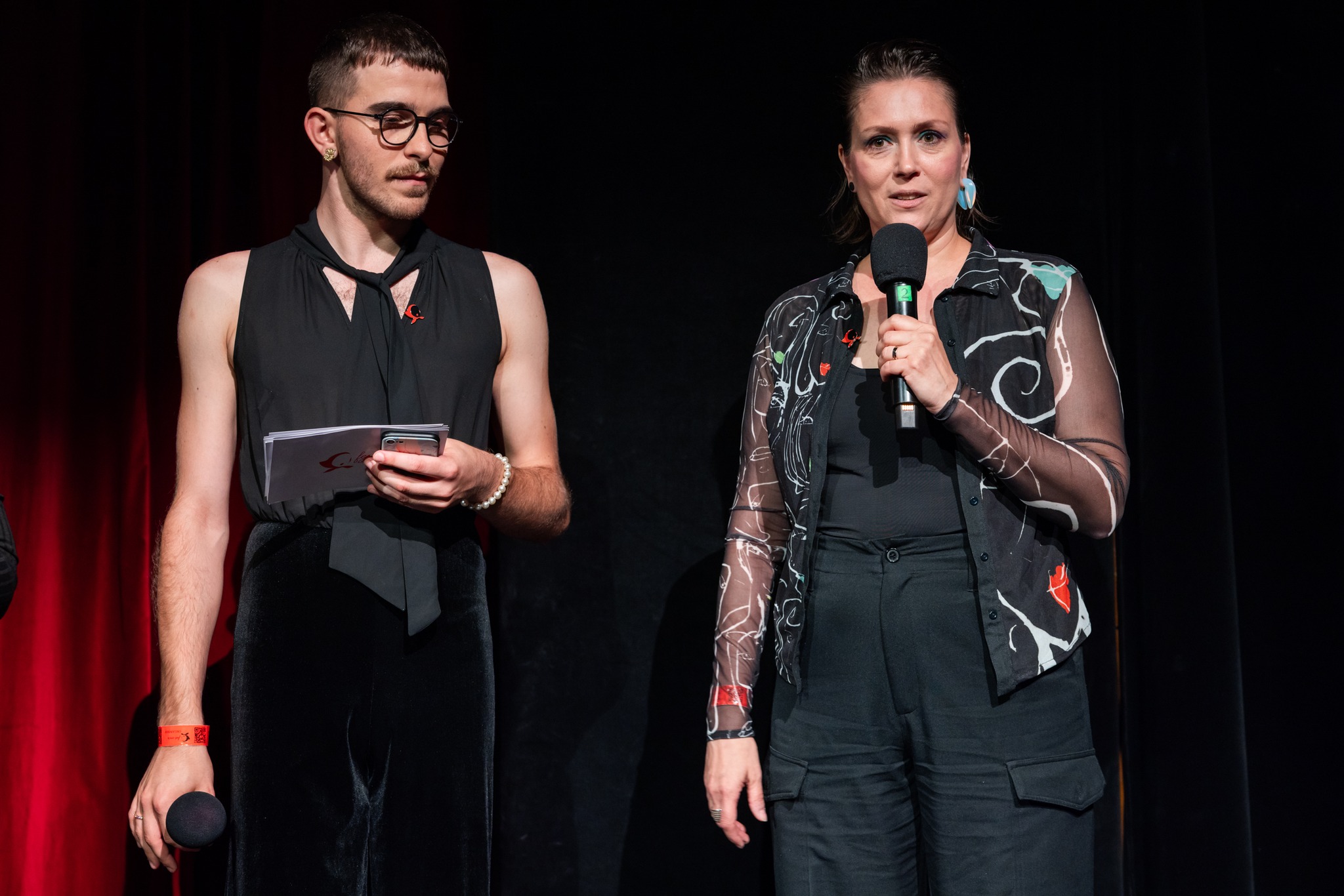
Nina de Gelder has built her career at the intersection of culture, education, and international cooperation. She served as Vice-Rector for International Relations at the Academy of Fine Arts and Design in Bratislava and later as Executive Director of an independent cultural centre. Since 2022, she has been the Executive Director of Fest Anča, an international animation festival, where she also curates the programme and coordinates the Student Forum Fest Anča. Nina enjoys connecting people, bringing together diverse interests, and building bridges across sectors and institutions. She likes to read comic books and is a big fan of the Dragon Ball anime series.